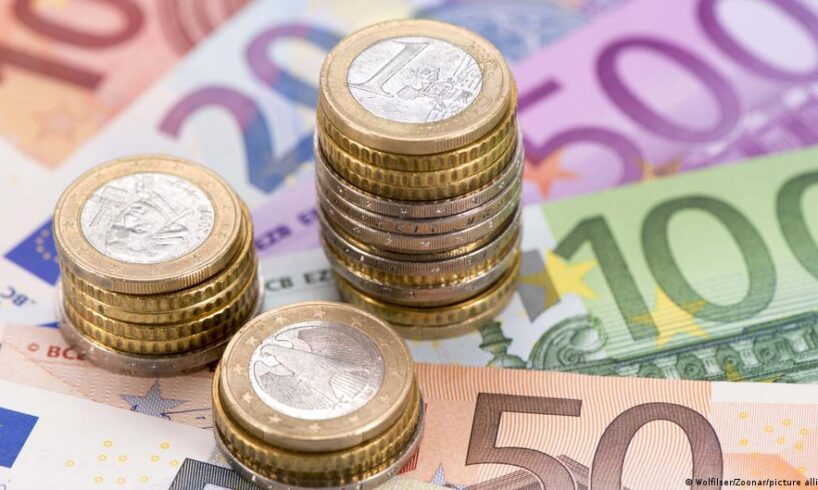
The German parliament’s budget committee has signed off on the budget presented by Finance Minister Lars Klingbeil (SPD). The exploding cost of Germany’s welfare system is putting pressure on the state coffers — along with the billions of euros needed to rearm the Bundeswehr and continue support for Ukraine in its war of self defense against Russia.
The new borrowing of some 180 billion euros is the second-highest in the country’s history — beaten only during the COVID-19 pandemic. It will be put to a final vote in the Bundestag.
The core €524.5 billion ($609,35 bn) budget includes more than €97.7 billion in new loans — 8 billion more than the budget experts from the center-right and center-left coalition government had envisaged just a few weeks ago.
But there’s also an additional €82 billion of debt, which will be used to upgrade the Bundeswehr, invest in the country’s ailing infrastructure, and in climate protection measures. That money is exempt from the statutory “debt brake.”
Can massive state spending turn the German economy around?
To view this video please enable JavaScript, and consider upgrading to a web browser that supports HTML5 video
SPD say investments should boost trust in democracy
Earlier this year, the Social Democrats (SPD), Christian Democrats (CDU), Christian Social Union (CSU) and Green Party agreed on two new special funds that are not subject to the rigid debt rules enshrined in Germany’s Basic Law. The Bundeswehr will receive €500 billion over the next few years and there is another €500 billion set aside for infrastructure, roads and railways, and climate protection. Funds from these assets will be drawn on for the first time in 2026.
SPD budget expert Thorsten Rudolf is optimistic about the future despite the high levels of borrowing. He said in Berlin: “If we take a broader view, we have to say that we are now in the sixth year of the crisis since Covid. It was perhaps naive to believe that a few decisions in Berlin would turn the mood around within a few months.”
Opposition accuse government of just shunting money around
The Department of Labor and Social Affairs, headed by Bärbel Bas (SPD), is again the largest item in the budget. Almost €198 billion are earmarked for social benefits — primarily to prop up the state pension system.
Almost €83 billion are intended for defense. A large portion of that will be invested in upgrading the armed services to make it capable of defending the country amid the growing threat posed by Russia.
The budget committee’s agreement, of course, met with little approval from the opposition parties. The Greens criticized that money from the two special funds was being used to plug some of the holes in the budget. The Greens’ budget expert, Sebastian Schäfer called the budget a “new chapter in the never-ending story of shunting around expenditure.” And the socialist Left Party said that the rearmament of the Bundeswehr could not be financed by debt in the long run.
Why Germany needs to reform its social security system
To view this video please enable JavaScript, and consider upgrading to a web browser that supports HTML5 video
AfD wants to cut money for the climate and Ukraine altogether
The far-right Alternative for Germany party (AfD) did not have a good word to say about the budget plans. AfD budget expert Michael Espendiller said that the government was planning “gigantic debts” and setting the wrong priorities. Almost a third of government expenditure would be financed by debt, according to Espendiller. The AfD’s proposed solution is to slash German payments to the EU and completely cut funding for measures to curb climate change and support for Ukraine.
The Budget Committee’s decision, which was preceded by months of negotiations, must now be approved by the German parliament, the Bundestag.
And there is one remaining hole in the budget that still has to be plugged. The government agreed this week to reduce industrial electricity prices to aid the struggling economy. That could cost taxpayers another five billion euros, according to expert estimates.
But government representatives, nevertheless, clearly looked pleased on Friday that they had finally agreed the budget for the coming year. Even if the day before, the Council of Economic Experts had accused the German government of spending too little money on investment. The panel, dubbed Germany’s economic sages, believe that this is the only way for the struggling economy to regain momentum.
This article was originally written in German.





